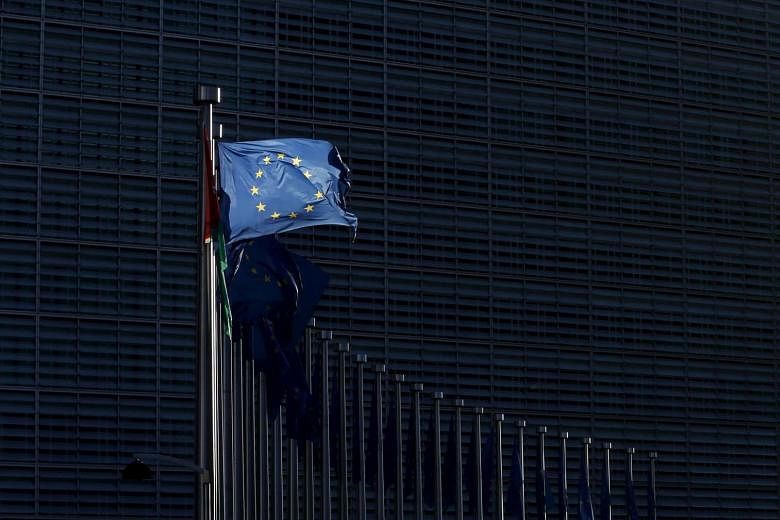BRUSSELS (AFP/REUTERS) - The European Union on Wednesday (Jan 13) launched an unprecedented probe into judicial changes introduced by Poland's new right-wing government to see if they violate EU democratic standards and merit punitive measures.
"Today we have decided that the (European) Commission will carry out a preliminary assessment on this matter under the rule of law framework," Commission vice-president Frans Timmermans said after the EU's executive arm held a special debate on the issue.
EU officials had previously indicated that the Commission might prefer to hold off for now on launching formal procedure that was set up two years ago in response to criticism that it had done too little to curb authoritarian moves by Hungarian Prime Minister Viktor Orban over the past several years.
However, Mr Timmermans, who in his previous role as a centre-left Dutch foreign minister was one of the architects of the new Rule of Law Framework, insisted and said it would allow for a "structured dialogue" with Warsaw.
He and the Commission would review Polish responses by mid-March, after working with the Council of Europe, the pan-European human rights watchdog.
A Polish government spokesman played down the launch of the process, describing it as "standard procedure".
Critics accuse Mr Jaroslaw Kaczynski, leader of Prime Minister Beata Szydlo's Law and Justice (PiS) party, of rolling back judicial independence and freedom of speech.
Supporters say the government is entitled to uphold Catholic and national values and show its independence from Brussels.
Since its election in October, the government has ignored existing rules to pack the constitutional court with its appointees and changed the court's voting system to curb its ability to censure legislation.
It has also passed a law giving it direct control over the appointment of public media chiefs.
The procedure pits the EU executive, formed of 28 appointees from each member state, against by far the biggest of the former Communist states of Eastern Europe which joined a decade ago.
Poland is represented on the Commission by an appointee of the previous, pro-European, centre-right government in Warsaw.
It comes at a time when the Union is perhaps more divided than at any time in its six-decade history, including between east and west, rich and poor states, over a variety of major crises, including how to handle a big influx of Syrian refugees.
In a letter to Polish Justice Minister Zbigniew Ziobro, seen by Reuters, Mr Timmermans, who as deputy head of the executive has responsibility for human rights, said: "The European Commission does not wish to put into question any of the democratic choices made by the Polish people...
"However, the European Union is founded on a common set of values... which include in particular the respect for the rule of law."
Commission President Jean-Claude Juncker has insisted that the executive will not engage in "bashing Poland" and some diplomats have warned that a perceived attack from Brussels could strengthen domestic support for PiS and the government.
Senior EU officials have noted that, unlike Mr Orban in Hungary, the Polish government has already faced substantial domestic protest at its actions, including demonstrations, and said that such opposition could moderate Kaczynski's programme.
On Tuesday, European Council President Donald Tusk, who has chaired EU summits since standing down as centre-right prime minister of Poland in 2014, urged EU lawmakers to hold Mr Kaczynski, his former great domestic rival, to account - but not to make ordinary Polish citizens suffer.

